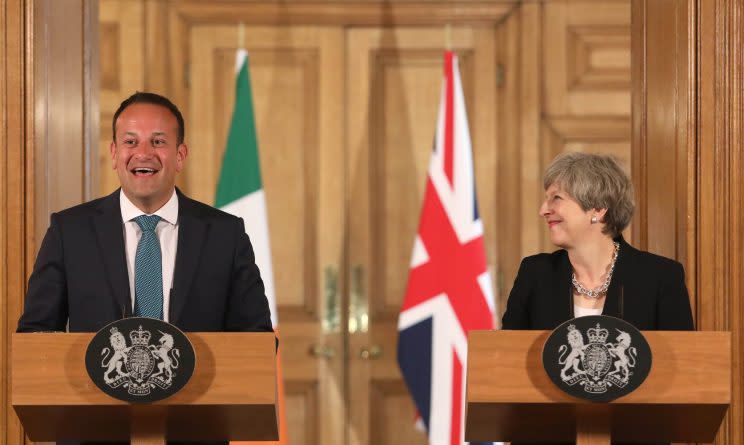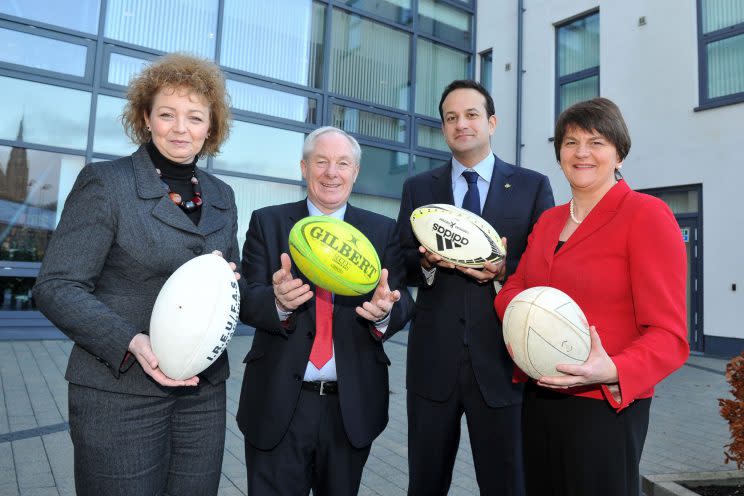After Brexit, will there be Irexit? Think tank says Ireland should seriously consider quitting EU

Ireland may be better off quitting Europe once Britain leaves, a leading think tank believes.
In a report, the Policy Exchange argues the prospect of Dublin getting a good deal out of the Brexit talks are “faint”.
The subject of the border between the Republic and the North is one of the key areas of negotiation over the next two years.
MORE: Brexit: UK being forced to budge on immigration in return for free trade
Writing for Policy Exchange, Dublin-born career diplomat Ray Bassett says the Republic could opt to remain with the UK in a customs and free trade area, while negotiating favourable trade and investment terms with the remaining 26 member states.
He says new Taoiseach Leo Varadkar faces a critical few months.
“The huge choice facing Ireland is whether, given the circumstances, the country can live with the likely post Brexit arrangements and so stay a full member of the European Union; or whether a radically different relationship with the EU is required, including the possibility of an Irish departure from formal membership, an Irexit,” he argues.

He says there has been “precious little” serious debate in the Republic about what happens after Brexit.
“Whatever the outcome of the Brexit negotiations, there will be a price to pay. For Ireland, there is really no upside to Brexit,” says Bassett.
MORE: Frankfurt gains Brexit boost with relentless lobbying
The official position of the Dublin government is to remain in the EU – indeed, according to the polls, the vast majority of Irish people support that stance.
However, Bassett says, there are fears that should Britain leave under “hard” Brexit terms, that could seriously damage Ireland’s economy.
For example, Joe Healy, president of the Irish Farmers Association, is quoted as saying: “The UK is an important trading partner for us. 40% of agri-food products go to the UK. That’s worth about €5 billion alone. We export 90% of our beef, with half going to the UK. Our dairy products that are exported to the UK have a value of slightly less than €1 billion.”
MORE: Brexit: UK banks could face £13bn restructuring bill after EU split
In a hard Brexit environment, import duties on agricultural products under simple World Trade Organisation rules could be up to 50% and would essentially end the centuries’ old trade between Ireland and Britain in food.
The report adds:
Access to the Single Market need not be synonymous with full EU membership.
The EU is facing “huge problems” and its future direction is unlikely to be in Ireland’s interests.
The DUP’s central role in Brexit negotiations as part of its relationship with the Tories should facilitate strong cooperation across Ireland.
“Simply sitting on the sidelines and allowing the EU to negotiate for Ireland is essentially untenable,” concludes Bassett.

 Yahoo Finance
Yahoo Finance 
